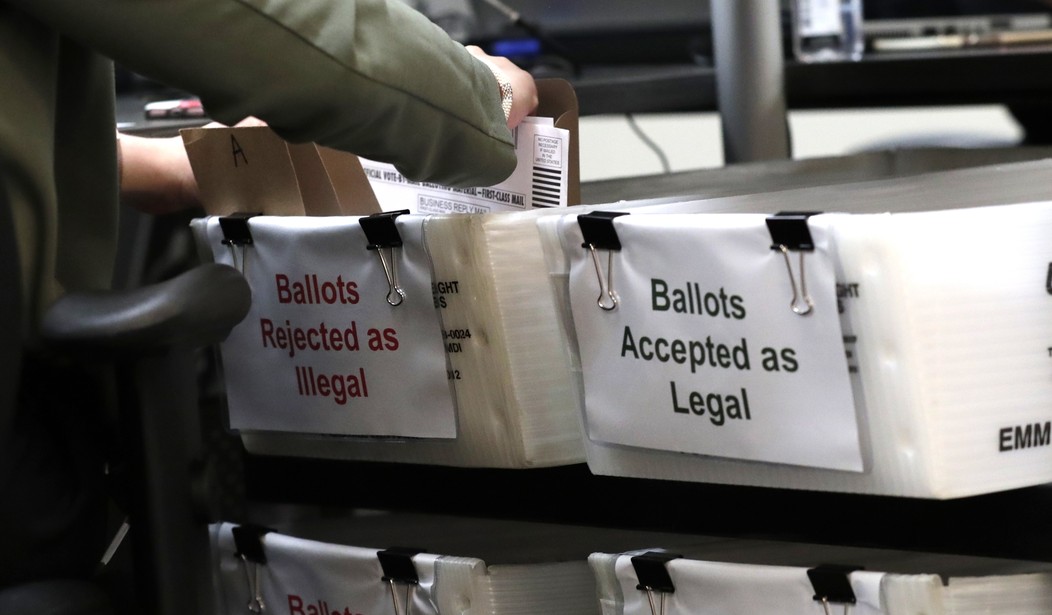The integrity of our elections has become a front-and-center issue in the past few years. Between the legitimate concerns that the 2020 presidential election instilled in many people and the wild conspiracy theories that have cropped up on both sides of the political aisle, voters have become increasingly concerned about whether their votes even count.
In response to the craziness of 2020, several states, Georgia and Texas among them, have enacted laws that, in the words of Georgia Gov. Brian Kemp, make it “easy to vote but hard to cheat.” Because these laws originated in states with Republican governors, the left decided to gin up fake outrage over “voter suppression” and even attempted a federal takeover of elections that would entrench Democrats in power for years.
With midterm elections coming up this year that could tip the balance of power in Congress, all eyes are on how various states are handling their voter rolls. Over half the states rely on the Electronic Registration and Information Center — ERIC for short.
Back in December, J. Christian Adams, PJ Media columnist and president of the Public Interest Legal Foundation (PILF), introduced us to ERIC. The way ERIC works is that the states that pay into the ERIC program send in their voter rolls, and ERIC analyzes them for voters who are dead or registered in multiple states. The idea, of course, is that the states then clean up voter rolls based on this analysis.
ERIC doesn’t always do the best job of ferreting out voters whose records should be struck from rolls. And even though these rolls and the means of cleaning them up are public record under U.S. law, the agreement with ERIC prevents outside agencies from inspecting the data.
Related: Biden’s ‘Voting Rights’ Political Theater in Georgia
All of this brings us to a lawsuit that Adams’ organization filed against Louisiana Secretary of State Kyle Ardoin over his ” failure to permit inspection of voter list maintenance records, including data the State receives from the Electronic Registration Information Center (ERIC).”
“The need for transparency is ever more important because ERIC has a history of inaccuracy when it comes to identifying ineligible registrants,” the statement from PILF continues. “Just last month, Louisiana announced it was suspending its participation in ERIC, citing ‘concerns raised by citizens, government watchdog organizations and media reports about potential questionable funding sources and that possibly partisan actors may have access to ERIC network data for political purposes, potentially undermining voter confidence.’”
The lawsuit cites the Public Disclosure Provision of the National Voter Registration Act and explains in great detail how ERIC violates that provision. The suit also details how PILF asked Ardoin’s office for access to the data from ERIC for 2019, 2020, and 2021. The state asked for repeated 30- and 60-day delays and ceased replying to PILF’s requests in January, hence the lawsuit.
“ERIC is hiding documents the public has a legal right to see,” Adams said in PILF’s statement. “Transparency is essential to having free and fair elections that Louisianans can trust. ERIC is blocking transparency and violating federal law by hiding these list maintenance documents. The public’s right to these records will be vindicated in Court.”
It’ll be interesting to see how this lawsuit plays out. Will it spell doom for ERIC, or will ERIC have to change its ways to stay in compliance with the law? Will we see more states distance themselves from ERIC like Louisiana has said it is?
No matter what happens, I’m rooting for a victory for election integrity. We the people deserve to know what states are doing to clean up their voter rolls, and organizations like PILF are doing tremendous work to shed light on what’s done in the dark.










Join the conversation as a VIP Member